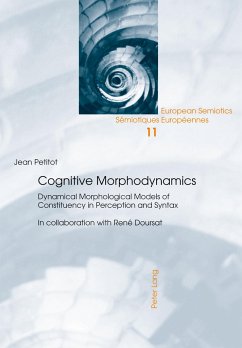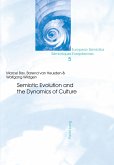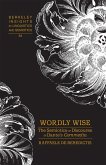This book - written in collaboration with René Doursat, director of the Complex Systems Institute, Paris - adds a new dimension to Cognitive Grammars. It provides a rigorous, operational mathematical foundation, which draws from topology, geometry and dynamical systems to model iconic «image-schemas» and «conceptual archetypes». It defends the thesis that René Thom's morphodynamics is especially well suited to the task and allows to transform the morphological structures of perception into Gestalt-like, abstract, proto-linguistic schemas that can act as inputs into higher-level specific linguistic routines.
Cognitive Grammars have drawn upon the view that the deep syntactic and semantic structures of language, such as prepositions and case roles, are grounded in perception and action. This study raises difficult problems, which thus far have not been addressed as a mathematical challenge. Cognitive Morphodynamics shows how this gap can be filled.
Cognitive Grammars have drawn upon the view that the deep syntactic and semantic structures of language, such as prepositions and case roles, are grounded in perception and action. This study raises difficult problems, which thus far have not been addressed as a mathematical challenge. Cognitive Morphodynamics shows how this gap can be filled.









